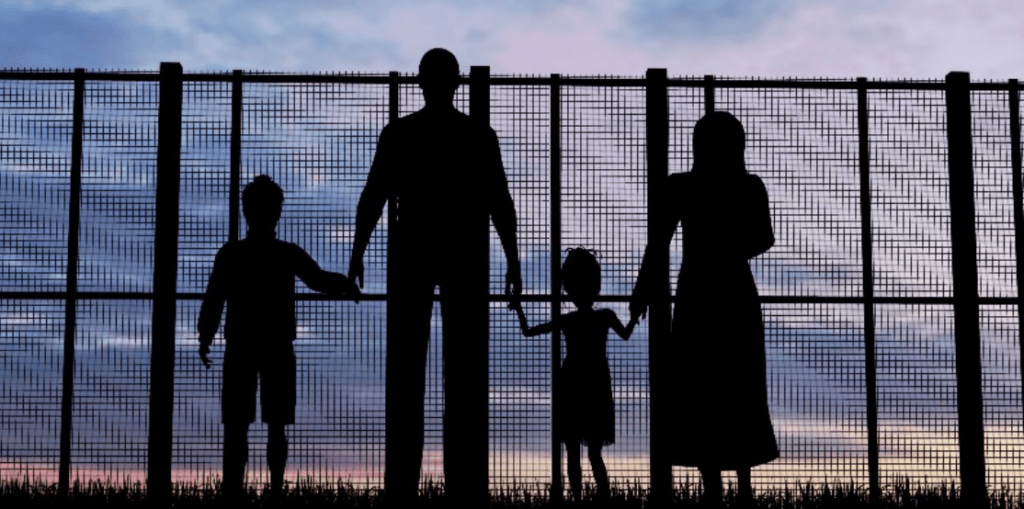Under this inhumane new standard, immigration officials could turn away immigrants who have received assistance from a variety of safety net programs.
November 13, 2018

Earlier this fall we met an immigrant mother, whose two children were born in the United States. Both children are on Medicaid and one lives with a disability. A cruel new Trump Administration proposal is having a chilling effect on this family — and millions of families around the country.
This mother feels she must make an unconscionable choice between keeping her children on Medicaid or risk securing a pathway to permanent legal status. She is responding to the calculated panic, fear, and confusion generated by the new “public charge” proposal — the latest racially fueled attack by the Administration. Parents throughout the country are thinking about forgoing crucial assistance they or their family members are entitled to in order to preserve their families.
No family should have to make that choice between meeting their basic needs and being with their loved ones. The best way to strengthen our country is to ensure that all families who live in it have the food, medical care, and shelter they need to thrive and contribute to their communities and our nation.
While we encourage this mother — and the millions of parents in her situation — to keep her children enrolled in this crucial assistance program, the Administration’s attack on families, immigrant communities, and people living in or near poverty would threaten both the immigration status and access to various public assistance programs of millions of other immigrants. By dramatically and nonsensically expanding the scope of the so-called “public charge” doctrine, rooted in 1882 immigration law, the Administration would punish people attempting to become legal permanent residents if they seek food, medical, or housing assistance. The rule would also penalize people with disabilities or chronic illnesses, those who are not proficient in English, and those younger than age 18 or older than 61. The Department of Homeland Security acknowledges the grievous harm this policy would inflict on families. The agency says the rule change would cause “worse health outcomes and increased poverty” and acknowledges that the rule would increase the prevalence of communicable diseases, productivity, and educational attainment.
Under this inhumane new standard, immigration officials could turn away immigrants seeking a green card to remain in the U.S. or others seeking a visa to come here, if they have received, or are judged likely to receive in the future, assistance from a variety of safety net programs.This would include Medicaid health coverage; Medicare prescription drug subsidies; food assistance through the Supplemental Nutrition Assistance Program (SNAP, or food stamps); public housing, Section 8 housing vouchers, and rental assistance; and cash assistance through the Temporary Assistance for Needy Families (TANF) and Supplemental Security Income (SSI) programs.
We know these targeted programs help families achieve financial security. The evidence is overwhelming: SNAP is an essential tool in the fight against poverty. SNAP households are more likely to purchase healthier foods, less likely to experience hunger, and tend to incur less medical costs. Expectant mothers who receive SNAP are more likely to have healthy births, while child recipients are more likely to graduate high school, earn more as adults, and avoid serious health issues. Medicaid improves short- and long-term health outcomes. In addition, children eligible for Medicaid are more likely to complete college and earn more in adulthood.
The proposed change would have a dire effect on families across the country. Nearly one in four — or 20 million — children has at least one immigrant parent, according to the Kaiser Family Foundation. More than 8 million citizen children who have at least one immigrant parent have Medicaid or Children’s Health Insurance Program (CHIP) coverage.
Again, the Administration’s anti-immigrant rhetoric and policy agenda are already causing immigrants to forgo crucial assistance, even though they are legally entitled to it, for fear of being targeted for deportation.Between 875,000 and 2 million citizen children with a noncitizen parent could lose Medicaid coverage because of fear — despite remaining eligible. Even people exempt from the public charge test, including refugees and asylees, will likely forgo benefits to protect themselves and their loved ones. By stigmatizing the safety net needed by people when they fall on hard times, this rule hurts everyone — including those born in the U.S.
The Administration’s proposal would also institute a de facto poverty test. Under this new assessment, immigration officials would consider, as a negative factor, whether an individual’s current household income is below 125 percent of the poverty level — about $31,375 for a household of four. Full-time employees who never miss a day of work but who make the federal minimum wage fail to reach this standard. The only positive factor considered would be earning 250 percent of the poverty level. Even immigrants who do not receive public benefits but have incomes below this threshold could be deemed a “public charge.” This is a direct attack on the poor and antithetical to the ideals this country was built on — that it is a land of opportunity for all. We must resist putting a price tag on the American Dream and punishing people for being poor.
We must stand up for our neighbors. The people affected by this cruel proposal are our nursing home or home health aides, our custodians, our dishwashers, our parking attendants, our retail clerks, and our restaurant workers. They work hard doing the jobs many of us rely on, but still need and qualify for assistance that supplements their low pay and poor or non-existent benefits.
Act now. Submit an official comment opposing the proposed rule during the 60-day comment period. Join the Sargent Shriver National Center on Poverty Law in voicing opposition to this cruel and reckless proposal.
Alissa Rivera contributed to this blog.
America’s greatest strength is its diversity.